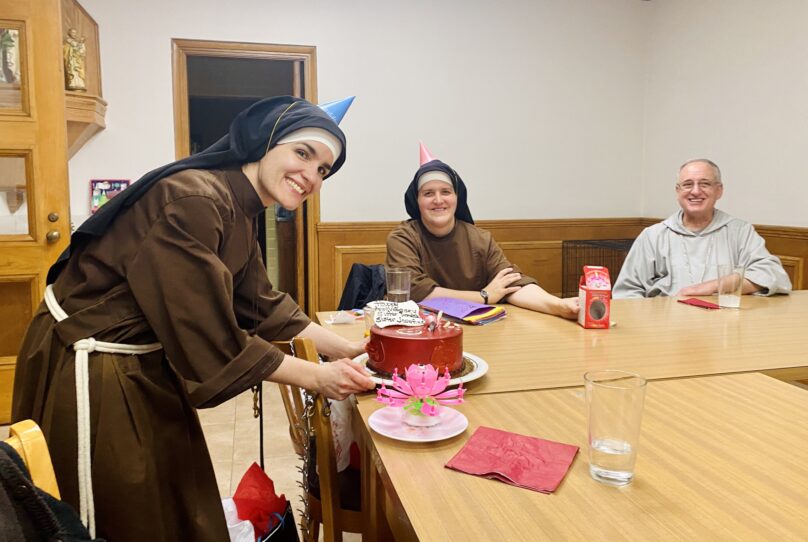
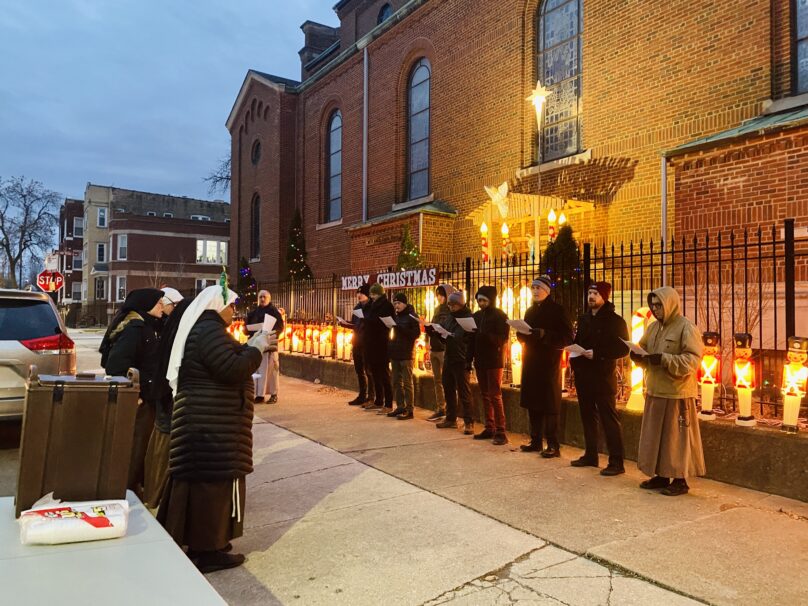

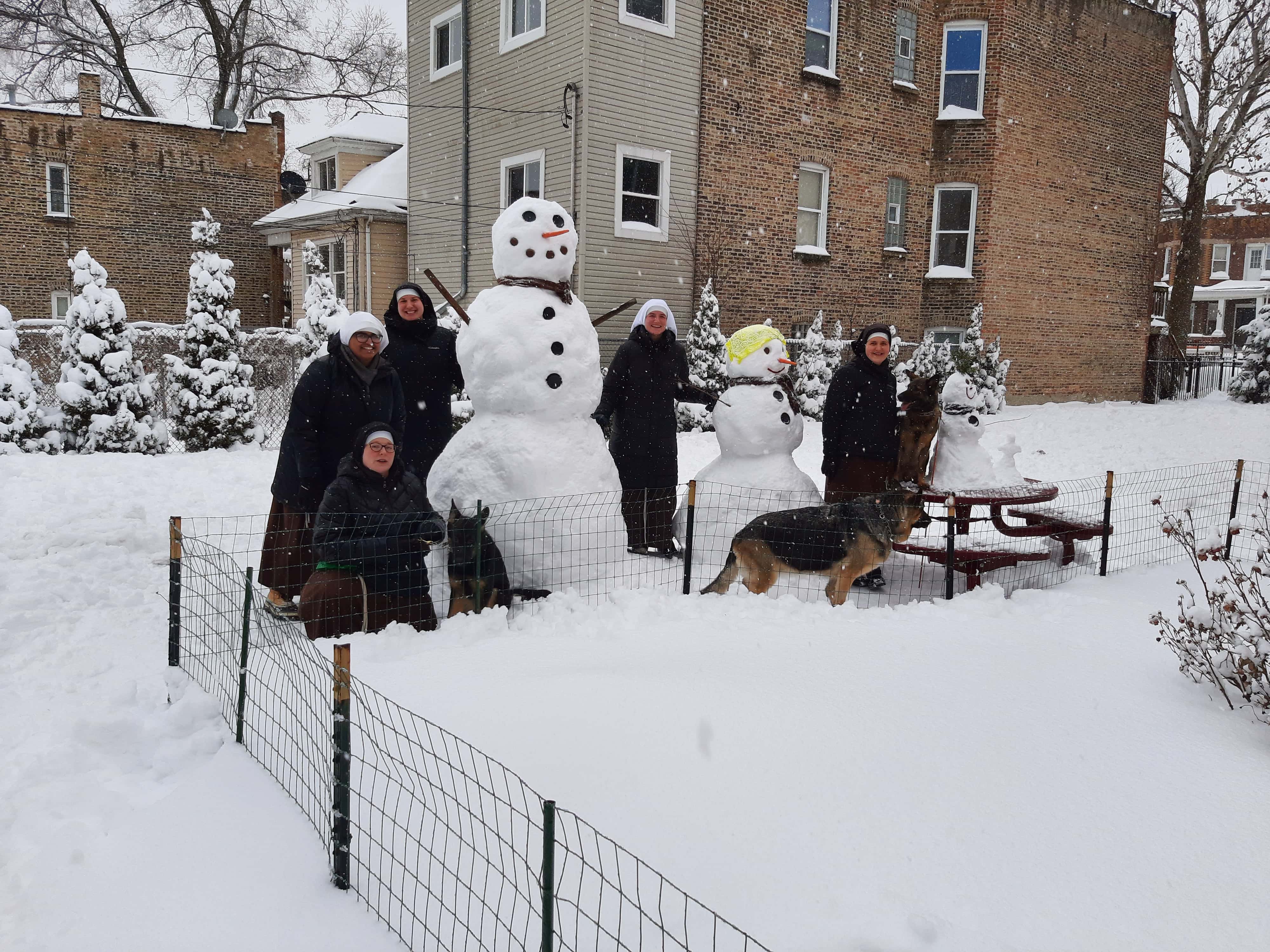

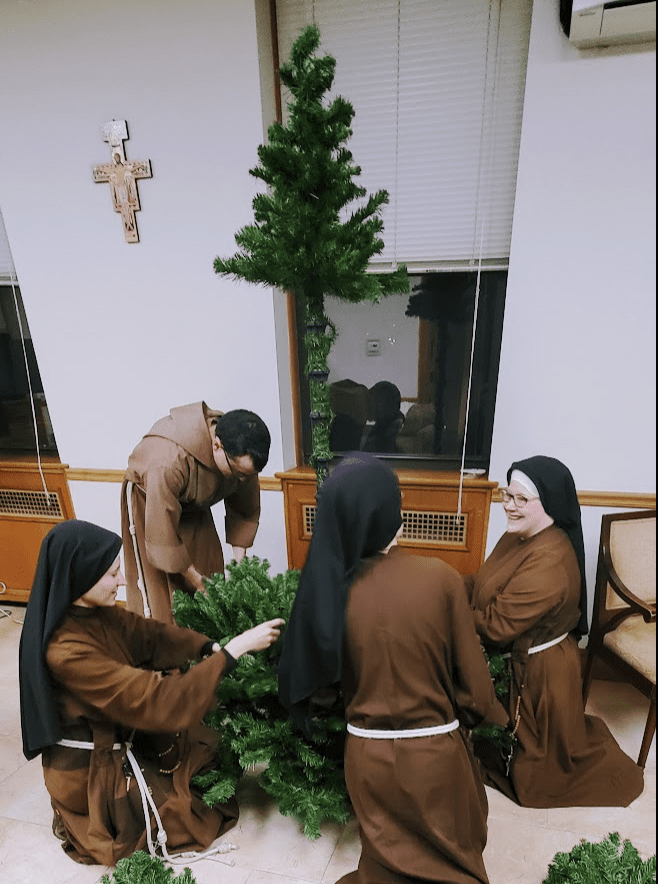
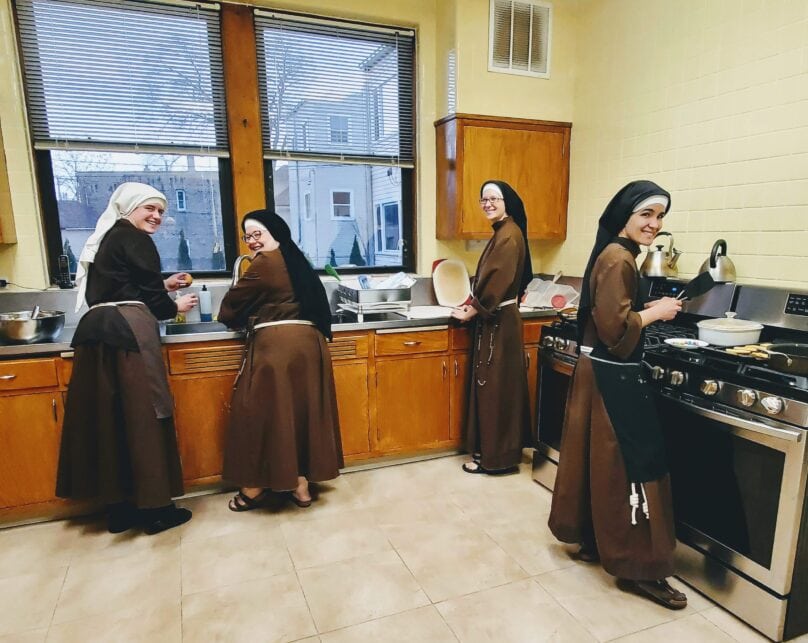
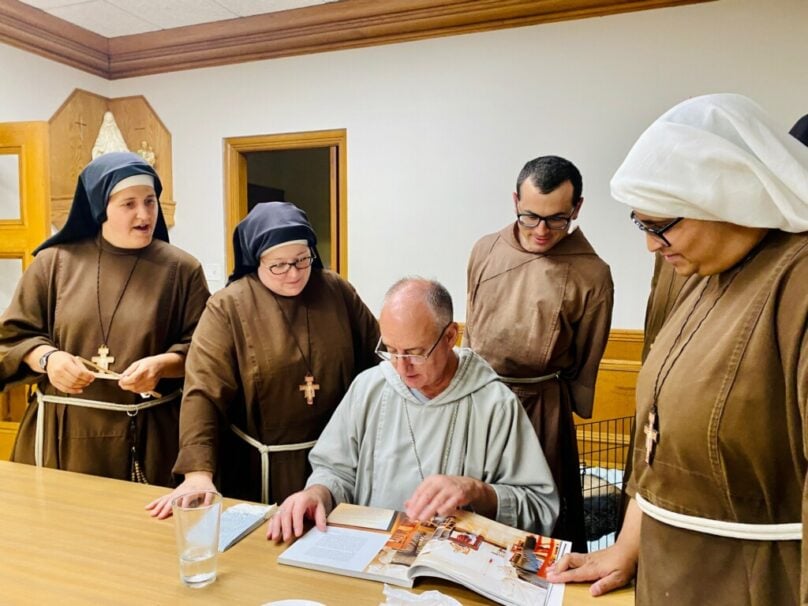
The community of believers was of one heart and mind, and no one claimed that any of his possessions was his own, but they had everything in common.
Acts of the Apostles 4:32
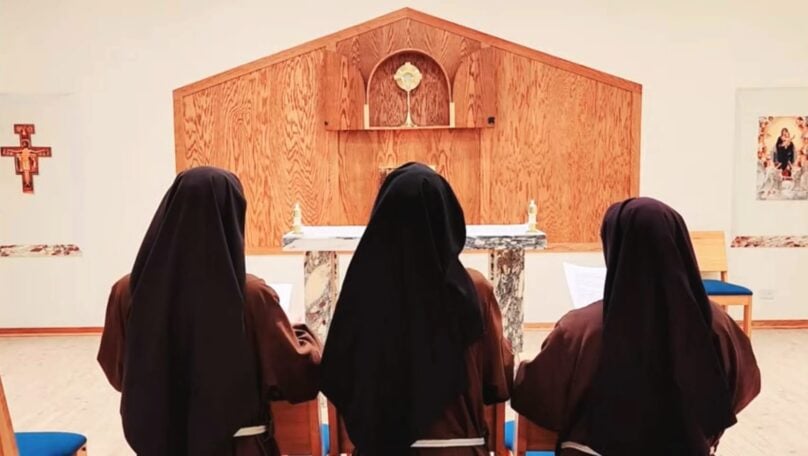
Fraternal Life
Essential Elements of Our Fraternal Life Include:
- Living in Religious houses
- Fraternal charity
- Communal prayer, apostolate, and meals
- Active participation in our daily prayer, life, and work
- Striving to foster and maintain an attitude of gratitude
- Growing as brothers and sisters in Christ
- Self-sacrificial service
- Honest communication
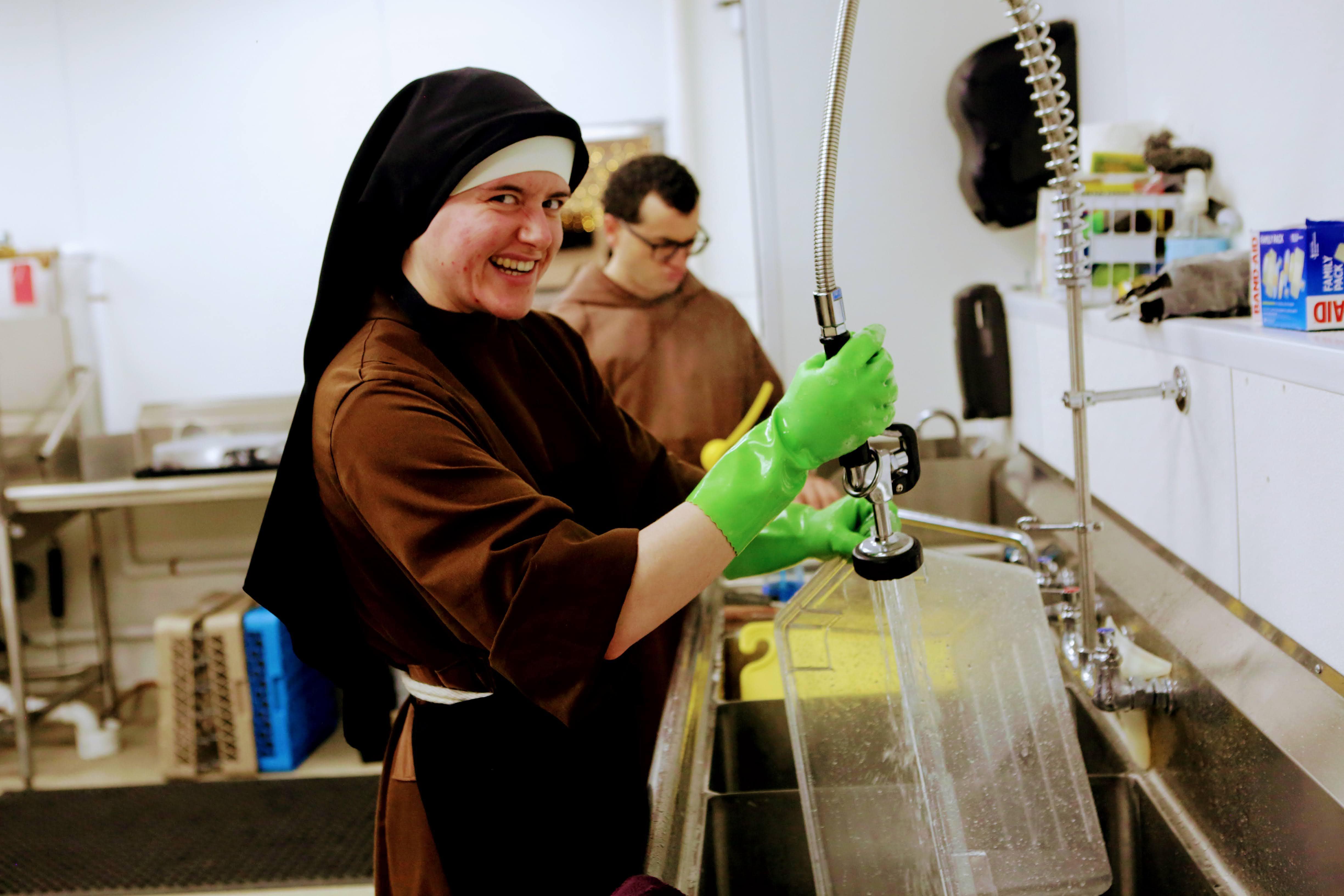
As members of one community, we desire to support and encourage one another through prayer, honest communication and self-sacrificial service. For all of us, and especially for religious, the most important relationship is with the Lord. In religious life, the next critical relationship for each member is with our own community. Our fraternal life (communal life) is so essential because it is where we learn how to serve with unconditional charity, bearing with one another patiently. When we strive to grow as brothers and sisters in Christ in community, it bears great fruit among us, and also in all we do to serve those outside our community through our apostolates. We keep the buildings we use, especially our living quarters, austere, maintaining simplicity and cleanliness. To safeguard chastity there are always separate sleeping areas for the friars and sisters.
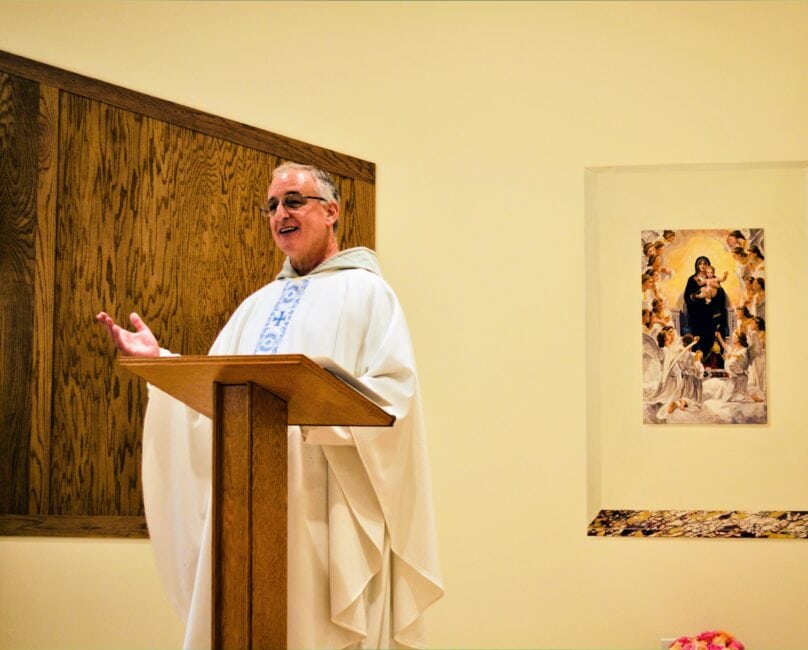
Bishop Bob, our superior, serves our community by helping us grow in our identity as Franciscans through a proper integration of our life of prayer, communal life, apostolate and charism. He guides and directs our community, helping foster peace and good order among the members and in all that we do in service to the Lord and the Church.
In our culture, many people struggle with authority. In religious life, we understand the superior as the person who guides the community and makes decisions for the good of the members. Even more importantly, the superior is the one chosen by God and appointed by the Church to help the community as a whole and each member personally live out God’s will each day. Religious superiors see their role as one of self-sacrificing service. Each of the three vows–poverty, chastity, and obedience–safeguard our way of life, and our superior is here to help us in daily living out these vows in service of God and one another.
But in the holy love which is God, I beg all brothers, both the minister and the others, as they overcome every obstacle and put aside every care and anxiety, to strive as best they can to serve, love, honor, and adore the Lord God with a clean heart and a pure mind, for this is what He desires above all things.
St. Francis of Assisi
